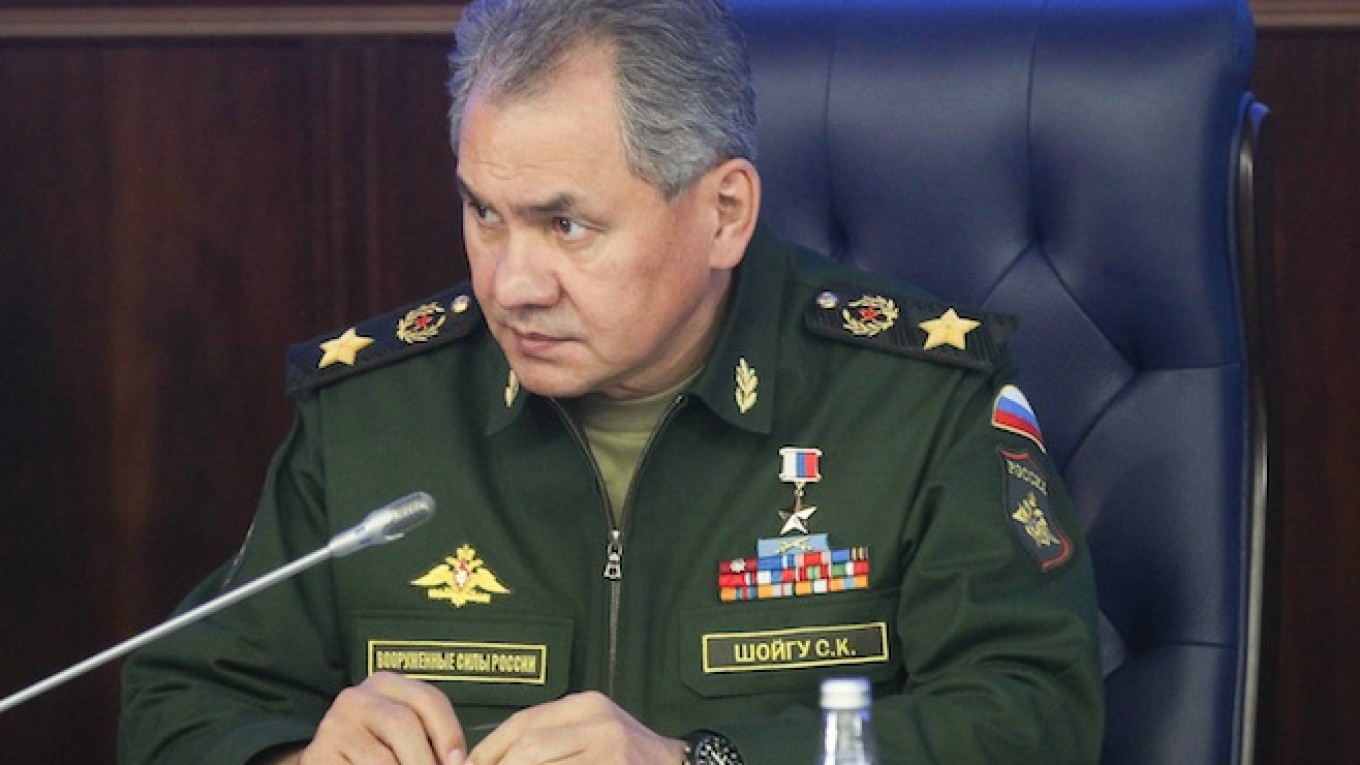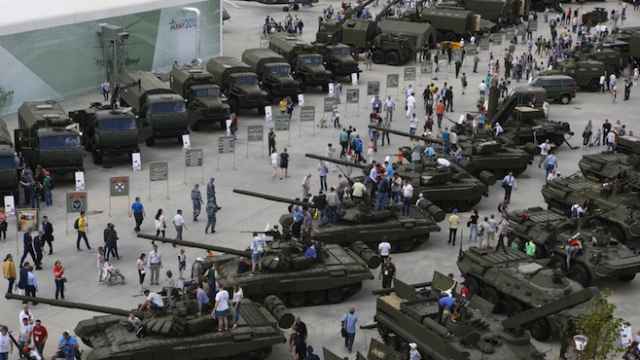Russian Defense Minister Sergei Shoigu has ordered an investigation into the shocking loss of seven military aircraft in crashes during routine training exercises since the beginning of June, news agency RIA Novosti reported Friday.
The crashes appear to show that an increase in Russian military activity connected to the crisis in Ukraine is straining the air force to the breaking point.
“The accident rate for military aviation continues to be one of the most acute problems [facing the military],” Shoigu said in a meeting at the Defense Ministry on Friday, RIA Novosti reported.
“We need to thoroughly understand the causes of these accidents and to identify specific measures to improve the situation,” he added.
Over the past 18 months, Russian military aircraft have been flying at a much higher rate than in previous years, as the Kremlin seeks to demonstrate its military power by sending bombers and fighter aircraft to probe NATO defenses in Europe and North America.
NATO reported intercepting 400 Russian military aircraft near alliance airspace last year — a 50 percent increase from 2013. The heightened operational tempo is catching up with Russia's largely Soviet-built and aging fleet of bombers and fighters.
According to news agency TASS, Russia from 2010 to 2014 lost on average one aircraft every two months. But the past seven weeks have seen seven crashes across a spectrum of designs and classes, pointing to problems larger than flaws in a single aircraft design.
Since early June the air force has lost two Tu-95 “Bear” strategic bombers, two MiG-29 fighters, an older Su-24 strike jet, a newer Su-34 fighter-bomber, and most recently an Antonov An-12 military transport.
Engine problems appear to be a common theme. One of the Bear bombers careened off a runway when an engine burst into flames on takeoff, and according to one unidentified source quoted by RIA Novosti after the second Tu-95 crash in mid-July, all four engines on that aircraft died mid-flight.
The problems come despite rapid growth in Russian defense expenditure in recent years and a 20 trillion ruble ($350 billion) rearmament program that began in 2010.
A Message from The Moscow Times:
Dear readers,
We are facing unprecedented challenges. Russia's Prosecutor General's Office has designated The Moscow Times as an "undesirable" organization, criminalizing our work and putting our staff at risk of prosecution. This follows our earlier unjust labeling as a "foreign agent."
These actions are direct attempts to silence independent journalism in Russia. The authorities claim our work "discredits the decisions of the Russian leadership." We see things differently: we strive to provide accurate, unbiased reporting on Russia.
We, the journalists of The Moscow Times, refuse to be silenced. But to continue our work, we need your help.
Your support, no matter how small, makes a world of difference. If you can, please support us monthly starting from just $2. It's quick to set up, and every contribution makes a significant impact.
By supporting The Moscow Times, you're defending open, independent journalism in the face of repression. Thank you for standing with us.
Remind me later.






